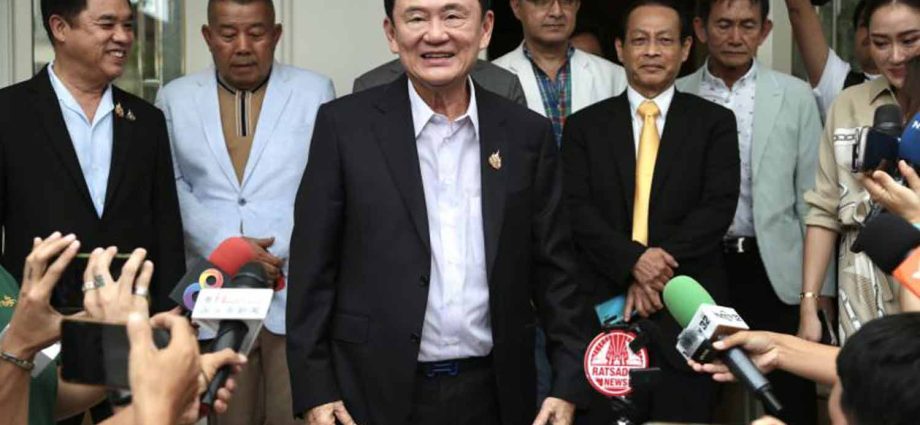
The Criminal Court on Wednesday denied former prime minister Thaksin Shinawatra permission to leave for Dubai on Thursday for medical treatment, just three weeks before the first hearing in the lese majeste case against him.
A source said Thaksin filed the request on Saturday, seeking permission to leave the country and stay in Dubai from Aug 1-Aug 16.
Thaksin was arraigned on charges of lese majeste and computer crime over comments he made during a media interview in South Korea in 2015.
He is due in court on Aug 19 for the first hearing, the examination of evidence and witness lists.
The court considered the leave request on Tuesday in the presence of Thaksin and his lawyer.
Thaksin said he wanted to see the Dubai doctors who had treated him for chronic lung inflammation, respiratory and cardiovascular illnesses and a herniated disk, in Dubai on Aug 2 and 8.
Thaksin said he also needed to meet important people on personal business in Dubai and would return to Thailand before his date with the court on Aug 19.
The court ruled that Thaksin’s illnesses also occured among the general public and doctors in Thailand could treat them. The court said Thaksin’s appointments with other people in Dubai were a personal matter.
The court did not see any necessity for the overseas trip and as the requested period was close to Aug 19, Thaksin could not be allowed to leave the country. It dismissed the request.
Thaksin was arraigned on June 18 and then released on bail of 500,000 baht and prohibited from leaving the country without prior court permision.
Thaksin, 75, is accused of defaming the monarchy during an interview with the South Korean newspaper Chosun Ilbo on May 21, 2015. In the interview, he said privy councillors supported the 2014 coup that ousted the government of his younger sister Yingluck Shinawatra. A video recording of the interview was posted on the internet.
Thaksin returned to Thailand on Aug 22 last year after 15 years in self-exile while facing prosecution in many political cases.
After his voluntary return, the Supreme Court sentenced him to eight years in prison on three cases, later reduced to one year by royal clemency.
He was paroled after controversially serving half his prison term, all of it at the Police General Hospital.

